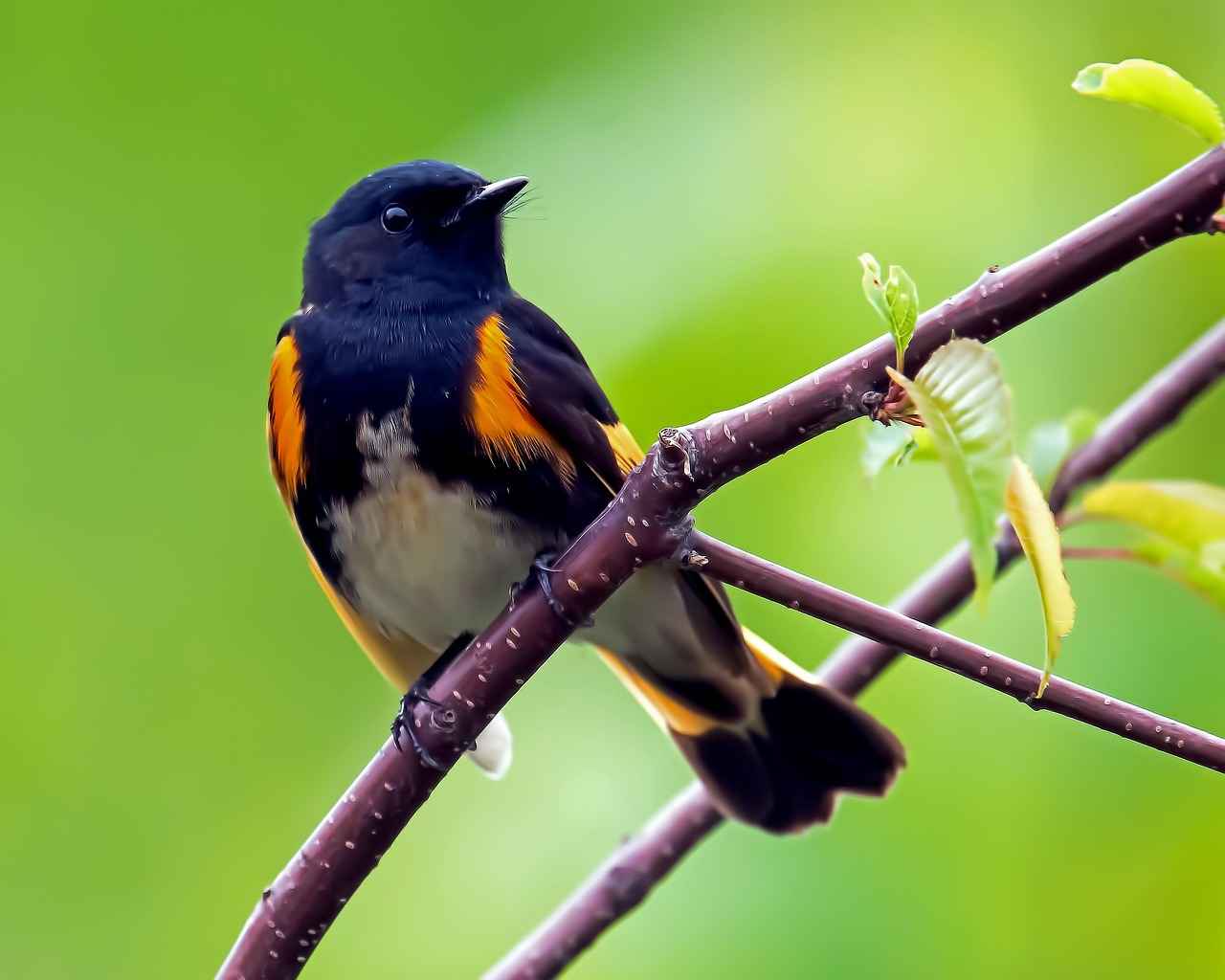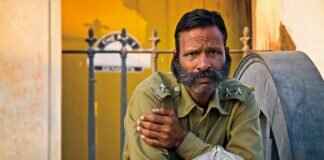This article delves into the vital role of Indian Americans in New York’s political landscape, analyzing their influence, the challenges they face, and their significant contributions to mainstream politics. It also highlights pathways for enhancing their participation in the democratic process.
The Historical Context of Indian American Political Engagement
Understanding the historical backdrop of Indian Americans in New York reveals how immigration patterns, community formation, and early political involvement have shaped their current political landscape. The first significant wave of Indian immigrants arrived in the early 20th century, primarily due to labor opportunities. Over the decades, these communities have evolved, leading to increased political consciousness and activism, particularly in response to civil rights movements and socio-economic challenges.
Demographics of Indian Americans in New York
A closer look at the demographics of Indian Americans in New York provides insights into their population size, socioeconomic status, and cultural diversity, which influence their political priorities and engagement strategies. As one of the fastest-growing ethnic groups, Indian Americans have diverse backgrounds, which contribute to a rich tapestry of perspectives in political discussions. This demographic diversity is crucial in addressing a wide range of issues, from immigration reform to education policies.
Key Issues Facing Indian Americans in New York
Exploring the key issues that resonate with Indian Americans, such as immigration policy, healthcare, and education, helps to understand their political motivations and the need for advocacy within mainstream politics. Immigration reform remains a pressing concern, as many community members navigate complex legal pathways. Additionally, access to quality healthcare and education are vital issues that drive political engagement, prompting Indian Americans to advocate for policies that reflect their community’s needs.
Indian American Representation in Local Government
Analyzing the representation of Indian Americans in New York’s local government showcases their political achievements and the importance of having voices that reflect community interests in decision-making processes. Over the years, a number of Indian Americans have held significant positions, contributing to policies that directly impact their communities. This representation is crucial for ensuring that the unique needs of Indian Americans are addressed in local governance.
The Role of Indian American Organizations in Politics
Indian American organizations play a crucial role in mobilizing voters, advocating for issues, and fostering political engagement, serving as vital platforms for community members to influence policy. These organizations not only provide resources and information but also create a sense of community and shared purpose among members. By organizing events, workshops, and forums, they empower individuals to voice their concerns and participate actively in the political process.
Challenges to Political Participation for Indian Americans
Identifying the challenges that Indian Americans face in political participation, such as language barriers, cultural differences, and systemic obstacles, sheds light on the need for targeted initiatives to enhance engagement. Many individuals may feel disconnected from the political process due to language difficulties or a lack of familiarity with the political system. Addressing these challenges requires concerted efforts from community leaders and policymakers to create inclusive environments that encourage participation.
Impact of Social Media on Political Mobilization
The rise of social media has transformed political mobilization among Indian Americans, providing new avenues for engagement, information dissemination, and community building in the political arena. Platforms like Facebook and Twitter have become essential tools for advocacy, allowing community members to share information, organize events, and mobilize support for various causes. This digital engagement has proven particularly effective in reaching younger generations, who are more likely to engage with political issues online.
Grassroots Movements and Their Influence
Grassroots movements led by Indian Americans have emerged as powerful forces for change, addressing local issues and empowering community members to participate actively in the political process. These movements often focus on specific concerns, such as housing, education, and healthcare, and work to amplify the voices of those who may otherwise be overlooked. By mobilizing community members and fostering solidarity, grassroots initiatives play a crucial role in shaping local policy and advocating for change.
Collaboration with Other Minority Groups
Examining the collaboration between Indian Americans and other minority groups highlights the importance of coalition-building in advocating for shared interests and enhancing political power in New York. By joining forces with other communities, Indian Americans can amplify their voices and work towards common goals, such as social justice and equitable representation. This collaboration not only strengthens their political influence but also fosters a sense of unity among diverse groups.
Engagement in National Politics and Elections
The involvement of Indian Americans in national politics, including presidential elections and congressional races, illustrates their growing influence and the importance of their votes in shaping policy. As a significant voting bloc, Indian Americans have the potential to sway election outcomes, making their engagement in national politics crucial. This involvement is reflected in increased voter registration efforts and participation in campaigns that resonate with their values.
Educational Initiatives to Foster Political Awareness
Educational initiatives aimed at increasing political awareness among Indian Americans are essential for fostering informed citizenship and encouraging active participation in the democratic process. Programs that focus on civic education, voter rights, and the electoral process can empower individuals to engage more meaningfully in politics. By equipping community members with the knowledge and tools they need, these initiatives can help bridge the gap between Indian Americans and mainstream political engagement.
Future Trends in Indian American Political Engagement
Anticipating future trends in political engagement among Indian Americans involves analyzing demographic shifts, evolving political landscapes, and the potential for increased representation in various political spheres. As younger generations become more politically active, their unique perspectives and priorities will shape the future of Indian American political engagement. Additionally, ongoing demographic changes may lead to new challenges and opportunities for advocacy and representation.

The Historical Context of Indian American Political Engagement
The political engagement of Indian Americans in New York is deeply rooted in a rich historical context that reflects their immigration journeys, community building efforts, and early involvement in civic matters. Understanding this backdrop is essential for grasping how these elements have influenced their current political landscape.
In the late 20th century, significant waves of Indian immigrants began arriving in the United States, particularly after the Immigration and Nationality Act of 1965, which abolished discriminatory quotas. This legislation opened the doors for a diverse group of individuals, including professionals, students, and family reunifications. As these immigrants settled in New York, they established vibrant communities that served as cultural and social hubs. The formation of organizations such as the Indian American Forum and various cultural associations played a pivotal role in fostering a sense of belonging and identity.
These communities not only provided social support but also became platforms for political advocacy. Early Indian American leaders recognized the importance of engaging with local and state politics to address issues affecting their communities. This realization led to the establishment of political action committees and grassroots movements aimed at increasing visibility and representation. For instance, the formation of the Indian American Political Action Committee (IAPAC) marked a significant step in mobilizing voters and advocating for policies that resonate with the Indian American community.
Moreover, the historical context of Indian American political engagement is intertwined with broader civil rights movements. The struggles faced by other minority groups in the United States inspired Indian Americans to advocate for their rights and interests. This solidarity has been crucial in shaping their approach to political involvement, emphasizing the need for coalition-building with other minority communities to amplify their voices and concerns.
As Indian Americans began to achieve political representation, their influence grew. Notable figures, such as Raja Krishnamoorthi and Pramila Jayapal, have emerged as key players in local and national politics, showcasing the impact of sustained political engagement. Their success stories serve as inspiration for younger generations, encouraging them to pursue careers in public service and advocacy.
In conclusion, the historical backdrop of Indian Americans in New York is characterized by a dynamic interplay of immigration patterns, community formation, and early political involvement. These elements have collectively shaped the current political landscape, highlighting the importance of understanding this context for future engagement and advocacy efforts.

Demographics of Indian Americans in New York
The demographics of Indian Americans in New York are a tapestry of cultural richness, socioeconomic diversity, and a growing political presence. Understanding these demographics is crucial for grasping how Indian Americans engage with the political landscape and advocate for their community’s needs.
As of recent estimates, Indian Americans constitute one of the fastest-growing ethnic groups in New York. The population is primarily concentrated in urban areas such as Queens, Brooklyn, and Manhattan, with significant communities in Long Island and Westchester County. This geographic distribution not only influences local politics but also fosters a sense of community among residents, encouraging collective action on issues that matter to them.
Indian Americans in New York exhibit a wide range of socioeconomic statuses, with many individuals holding advanced degrees and occupying professional roles in fields such as technology, healthcare, and finance. According to the U.S. Census Bureau, the median household income for Indian Americans is significantly higher than the national average, reflecting their educational achievements and professional success. However, disparities exist within the community, particularly among recent immigrants who may face economic challenges.
The Indian American community in New York is incredibly diverse, encompassing various linguistic, religious, and regional backgrounds. This diversity is reflected in the multitude of cultural organizations, festivals, and events that celebrate Indian heritage, such as Diwali and Holi. Such cultural expressions not only enrich the local community but also play a vital role in fostering political engagement by uniting individuals around shared values and goals.
Understanding the demographics of Indian Americans in New York sheds light on their political priorities. Issues such as immigration reform, healthcare access, and education policy resonate deeply within the community. Many Indian Americans actively engage in political advocacy, utilizing community organizations and social media platforms to mobilize voters and raise awareness about critical issues. Additionally, their increasing participation in local and state elections signifies a growing recognition of the importance of representation in the political sphere.
The demographic characteristics of Indian Americans in New York significantly influence their political engagement strategies. Younger generations, who are often more tech-savvy, utilize social media to connect with political candidates and issues, while older generations may rely on traditional forms of engagement, such as community meetings and local events. This intergenerational dynamic creates a rich environment for dialogue and collaboration, ultimately enhancing the community’s political influence.
As Indian Americans continue to navigate the complexities of their demographics, their contributions to New York’s political landscape will undoubtedly evolve. By understanding their population size, socioeconomic status, and cultural diversity, stakeholders can better address the needs and aspirations of this vibrant community, ultimately fostering a more inclusive political environment.

Key Issues Facing Indian Americans in New York
Indian Americans in New York represent a vibrant and growing community, significantly influencing the political landscape. However, they face several key issues that shape their political motivations and advocacy efforts. Understanding these issues is crucial for grasping the broader context of their engagement in mainstream politics.
- Immigration Policy: Immigration remains a pressing concern for Indian Americans, many of whom are first or second-generation immigrants. The complexities of U.S. immigration laws, including visa backlogs and pathways to citizenship, directly affect their lives. Advocacy for reform in immigration policy is essential, as it impacts family reunification and job opportunities.
- Healthcare Access: Access to quality healthcare is another significant issue. Many Indian Americans work in the healthcare sector, yet face challenges such as high costs and lack of insurance coverage. Advocacy for affordable healthcare solutions resonates deeply within the community, as they strive for equitable access to medical services.
- Education: Education is a cornerstone of the Indian American community, with a strong emphasis on academic achievement. However, disparities in educational resources and opportunities persist. Indian Americans advocate for equal educational opportunities, ensuring that future generations have access to quality education that prepares them for success.
- Employment and Economic Opportunities: The Indian American community contributes significantly to the economy, yet they often encounter barriers in the job market. Issues such as discrimination and underemployment are prevalent. Advocacy for equal employment opportunities and support for small businesses is vital to enhance economic stability.
- Cultural Representation: The need for cultural representation in politics cannot be overstated. Indian Americans seek to ensure that their voices and perspectives are included in the decision-making processes. This involves advocating for policies that reflect their cultural values and concerns, fostering a sense of belonging in the broader political landscape.
Addressing these key issues requires collective action and advocacy. Indian American organizations play a pivotal role in mobilizing community members to engage with these challenges. By fostering awareness and encouraging participation in the political process, they help amplify the voices of Indian Americans in New York.
Through collaboration with other minority groups and participation in grassroots movements, Indian Americans can strengthen their advocacy efforts. Engaging with mainstream politics allows them to address these critical issues effectively, ensuring their community’s needs and aspirations are recognized and acted upon.
Ultimately, understanding the key issues facing Indian Americans in New York is essential for fostering a more inclusive political environment. By advocating for immigration reform, healthcare access, educational equity, employment opportunities, and cultural representation, the community can bridge the gap with mainstream politics and make a lasting impact.

Indian American Representation in Local Government
The representation of Indian Americans in New York’s local government is a significant marker of their political achievements and community engagement. Over the past few decades, Indian Americans have increasingly participated in local governance, reflecting their growing influence and the necessity of having diverse voices in decision-making processes. This section delves into the current landscape of Indian American representation, highlighting their contributions, the challenges they face, and the importance of their involvement in local governance.
- Increasing Representation: The number of Indian Americans in local government positions has seen a notable rise. From city council members to local judges, their presence is becoming more pronounced. This increased representation is crucial as it allows for the incorporation of community-specific issues into local policies.
- Political Achievements: Indian Americans have made significant strides in various local government roles, achieving milestones that serve as a source of inspiration for younger generations. For instance, the election of Indian American officials has led to greater attention to issues like education, public health, and community safety, which resonate deeply with the Indian American community.
- Community Interests: Having representatives who understand the unique challenges faced by Indian Americans is essential. These elected officials can advocate for policies that reflect the community’s needs, such as immigration reform, cultural representation, and access to education and healthcare.
The representation of Indian Americans in local government also emphasizes the importance of **community engagement**. Organizations such as the Indian American Political Action Committee (IAPAC) have been instrumental in mobilizing voters and encouraging political participation. These organizations not only support candidates but also educate the community about the electoral process, fostering a culture of civic engagement.
However, challenges remain. Many Indian Americans face barriers to entry in politics, including a lack of familiarity with the political landscape, language barriers, and cultural differences. Addressing these challenges is vital for further enhancing representation. Initiatives aimed at mentoring potential candidates and providing resources for political education can significantly improve the participation of Indian Americans in local governance.
Furthermore, collaboration with other minority groups can amplify the voices of Indian Americans in local government. By forming coalitions, they can advocate for shared interests and create a more inclusive political environment. This solidarity not only strengthens their political power but also enriches the decision-making process within local government.
In conclusion, the representation of Indian Americans in New York’s local government is a testament to their political engagement and the importance of diverse voices in shaping community interests. As they continue to break barriers and achieve political milestones, their involvement will undoubtedly play a crucial role in the future of New York’s governance. The ongoing efforts to enhance representation and address challenges highlight the potential for Indian Americans to influence policy and advocate for their community effectively.

The Role of Indian American Organizations in Politics
Indian American organizations serve as pivotal entities in the political landscape of the United States, especially in states like New York. These organizations are not only instrumental in mobilizing voters but also play a significant role in advocating for issues that resonate with the community. By fostering political engagement, they create vital platforms for community members to influence policy and decision-making processes.
One of the primary functions of these organizations is voter mobilization. They work tirelessly to ensure that Indian Americans are registered to vote and are informed about the electoral process. Through community outreach programs, workshops, and informational campaigns, these organizations help demystify the voting process, making it accessible to all. This is particularly important given the diverse backgrounds within the Indian American community, where language barriers and unfamiliarity with the political system can pose challenges.
In addition to mobilizing voters, Indian American organizations actively engage in advocacy. They identify key issues that affect their community, such as immigration reform, healthcare access, and educational opportunities, and work to raise awareness among policymakers. By organizing events, lobbying efforts, and collaborative initiatives, these organizations ensure that the voices of Indian Americans are heard in legislative discussions. This advocacy is crucial for addressing the unique challenges faced by the community and for promoting policies that reflect their needs and priorities.
Another significant aspect of their role is fostering a sense of political identity and engagement among Indian Americans. Many organizations provide educational resources and training programs aimed at increasing political awareness and participation. By encouraging community members to engage in civic activities, these organizations help cultivate a politically active citizenry that is better equipped to advocate for their interests.
Furthermore, Indian American organizations often collaborate with other minority groups, enhancing their political power and influence. By forming coalitions, they can address shared concerns and amplify their collective voice. This collaboration not only strengthens their advocacy efforts but also fosters a sense of unity among diverse communities in New York.
In conclusion, Indian American organizations are vital in shaping the political landscape for their community. Through voter mobilization, advocacy, and community engagement, they empower Indian Americans to participate actively in the democratic process. As these organizations continue to evolve, their role in bridging the gap between Indian Americans and mainstream politics will remain crucial for fostering a more inclusive and representative political environment.

Challenges to Political Participation for Indian Americans
Political participation is a cornerstone of democratic engagement, yet many Indian Americans encounter significant challenges that hinder their involvement. Understanding these obstacles is crucial for developing effective strategies to enhance political engagement within this vibrant community.
- Language Barriers: One of the primary challenges faced by Indian Americans is language proficiency. Many members of the community, particularly older generations, may not be fluent in English. This can lead to difficulties in understanding political discourse, accessing information about candidates, and participating in discussions. Language barriers can discourage individuals from voting or engaging in political activities, as they may feel intimidated or excluded from the process.
- Cultural Differences: Cultural nuances can also play a significant role in political participation. Indian Americans often come from diverse backgrounds, each with its own set of values and beliefs. These cultural differences can affect how political issues are perceived and prioritized. For instance, certain topics may resonate more with specific cultural groups within the Indian American community. Without tailored outreach efforts that respect and acknowledge these differences, many individuals may feel alienated from mainstream political discussions.
- Systemic Obstacles: Systemic barriers, such as voter ID laws and gerrymandering, disproportionately affect minority communities, including Indian Americans. These obstacles can complicate the voting process and create disenfranchisement. Moreover, a lack of representation in political offices can perpetuate a cycle of disinterest and disengagement, making it challenging for Indian Americans to see themselves as part of the political landscape.
- Limited Awareness of Political Processes: Many Indian Americans, especially recent immigrants, may have limited knowledge of the American political system. This lack of awareness can result in lower participation rates in elections and civic activities. Educational initiatives that focus on the importance of voting, understanding local governance, and civic responsibilities are essential to empower this community.
- Economic Constraints: Economic factors can also impact political participation. Many Indian Americans work long hours in demanding jobs, leaving little time for civic engagement. Additionally, financial instability can deter individuals from participating in costly campaign events or contributing to political causes. Addressing these economic barriers is vital for fostering a more politically active community.
To address these challenges, targeted initiatives are essential. Community organizations can play a pivotal role in providing resources, language assistance, and educational workshops that demystify the political process. By fostering an inclusive environment that values diverse perspectives, Indian Americans can be encouraged to engage more actively in political discourse and decision-making.
In conclusion, recognizing and addressing the multifaceted challenges faced by Indian Americans in political participation is crucial for enhancing their engagement. Through collaborative efforts and strategic initiatives, the community can overcome these obstacles and make their voices heard in the political arena.

Impact of Social Media on Political Mobilization
The advent of social media has revolutionized the way political mobilization occurs among Indian Americans, particularly in urban centers like New York. With platforms such as Facebook, Twitter, and Instagram, community members are able to engage in political discourse, share information, and organize events at an unprecedented scale. This transformation has not only increased visibility for Indian American issues but has also facilitated a more inclusive dialogue within the broader political landscape.
- Information Dissemination: Social media serves as a powerful tool for disseminating information regarding political candidates, policies, and upcoming elections. Indian American organizations utilize these platforms to educate their communities about critical issues such as immigration reform, healthcare, and education policy. The ability to share articles, videos, and infographics allows for a more informed electorate.
- Community Building: Social media fosters a sense of community among Indian Americans. Groups and pages dedicated to political advocacy create a virtual space where members can discuss their concerns, share experiences, and mobilize for action. This sense of belonging is crucial for encouraging participation in the political process.
- Grassroots Campaigning: Social media has enabled grassroots movements to thrive. Activists can rally support for local causes, organize protests, and even fundraise for political candidates. The viral nature of social media campaigns can amplify messages quickly, reaching a wider audience than traditional methods.
- Engagement with Mainstream Politics: Indian Americans are increasingly using social media to engage with mainstream political figures and parties. By tagging politicians in posts or participating in live discussions, community members can advocate for their interests and hold leaders accountable.
- Mobilization for Elections: During election cycles, social media becomes a vital tool for mobilizing voters. Campaigns can target specific demographics with tailored messages, making it easier to reach potential voters within the Indian American community. This targeted approach has proven effective in increasing voter turnout.
The influence of social media extends beyond mere information sharing; it fundamentally alters the dynamics of political engagement. For instance, the ability to interact directly with elected officials and candidates allows Indian Americans to voice their concerns and influence policy discussions. This direct line of communication can lead to more responsive governance, as politicians become aware of the specific needs and priorities of the community.
Moreover, social media’s role in political mobilization is not without challenges. The spread of misinformation can mislead voters, and the digital divide may exclude some community members from fully participating in the online political discourse. Addressing these challenges requires a concerted effort from community organizations to provide accurate information and ensure that all voices are heard.
In conclusion, the rise of social media has significantly impacted political mobilization among Indian Americans. By providing new avenues for engagement, fostering community building, and facilitating grassroots movements, social media has transformed the political landscape. As Indian Americans continue to navigate this digital age, their ability to leverage these platforms will be crucial in shaping their political future and ensuring their voices are heard in the mainstream political arena.

Grassroots Movements and Their Influence
In recent years, grassroots movements led by Indian Americans have emerged as significant catalysts for change within their communities. These movements are characterized by their focus on local issues and their commitment to empowering community members to engage actively in the political process. By organizing at the grassroots level, Indian Americans are not only addressing pressing concerns but are also creating a platform for collective action that resonates with a broader audience.
One of the primary strengths of grassroots movements is their ability to mobilize community members around shared interests and needs. For instance, issues such as immigration reform, education access, and healthcare equity have galvanized Indian Americans to come together and advocate for change. These movements often start with small groups of dedicated individuals who recognize the importance of their voices in shaping local policies. Through community meetings, rallies, and social media campaigns, these activists build momentum and raise awareness about critical issues that affect their lives.
Furthermore, grassroots movements serve as a vital training ground for future leaders within the Indian American community. By participating in these initiatives, individuals gain valuable experience in organizing, advocacy, and public speaking. This hands-on involvement not only empowers participants but also helps to cultivate a new generation of leaders who are equipped to navigate the political landscape. As these leaders rise to prominence, they bring with them a wealth of knowledge and experience that can further enhance the effectiveness of grassroots efforts.
Collaboration is another key aspect of these grassroots movements. Indian Americans have increasingly recognized the importance of partnering with other minority groups to amplify their voices and strengthen their advocacy efforts. By forming coalitions with organizations representing diverse communities, they can address common challenges more effectively. This collaborative approach not only fosters solidarity among different groups but also enhances their collective political power.
The impact of grassroots movements extends beyond local communities; they also play a crucial role in shaping the broader political discourse. As these movements gain traction, they attract attention from policymakers and the media, thereby elevating the issues at hand to a national platform. This increased visibility can lead to meaningful policy changes and greater representation of Indian American interests in government.
In conclusion, the rise of grassroots movements among Indian Americans signifies a profound shift in political engagement. By focusing on local issues, empowering community members, and fostering collaboration, these movements are not only addressing immediate concerns but also paving the way for a more inclusive and representative political landscape. As they continue to grow and evolve, the influence of these grassroots efforts will undoubtedly shape the future of Indian American political participation.

Collaboration with Other Minority Groups
The significance of collaboration between Indian Americans and other minority groups in New York cannot be overstated. As the political landscape becomes increasingly diverse, the need for coalition-building emerges as a vital strategy for advocating shared interests and enhancing political power. This collaboration not only strengthens the voice of Indian Americans but also creates a unified front that can effectively address common challenges faced by various communities.
In recent years, Indian Americans have recognized the importance of forming alliances with other minority groups, such as African Americans, Hispanic Americans, and Asian Pacific Islanders. These collaborations are essential for several reasons:
- Shared Interests: Many issues, such as immigration reform, healthcare access, and education equity, resonate across different minority communities. By working together, these groups can amplify their voices and push for policies that benefit all.
- Increased Political Power: A coalition of diverse minority groups can wield greater influence in political arenas. When these communities unite, they can mobilize larger voter bases, making their collective interests harder to ignore by politicians and policymakers.
- Resource Sharing: Collaboration allows for the pooling of resources, knowledge, and strategies. Organizations can share best practices in voter mobilization, community outreach, and advocacy efforts, leading to more effective campaigns.
Moreover, Indian Americans have actively participated in coalitions such as the New York City Coalition of Asian American Organizations and the Black and Brown Coalition, which focus on social justice, economic empowerment, and political representation. These partnerships exemplify how diverse groups can come together to challenge systemic inequalities and advocate for equitable policies.
One notable example of successful collaboration is the joint efforts during the 2020 Census. Indian American organizations worked alongside Hispanic and African American groups to ensure accurate representation and participation. This collective effort highlighted the importance of an inclusive approach to civic engagement.
Furthermore, the collaboration extends beyond political advocacy. Cultural exchanges and community events foster mutual understanding and respect among different ethnic groups. These initiatives not only strengthen relationships but also create a sense of solidarity, which is crucial for long-term political engagement.
However, challenges remain. While there is a growing recognition of the need for collaboration, historical tensions and cultural differences can sometimes hinder progress. It is essential for leaders within these communities to prioritize open dialogue and trust-building to overcome these barriers.
In conclusion, the collaboration between Indian Americans and other minority groups in New York is a powerful tool for enhancing political engagement and advocating for shared interests. By building coalitions, these communities can not only amplify their voices but also work towards a more equitable and inclusive political landscape. As they continue to navigate the complexities of mainstream politics, the strength derived from collaboration will be pivotal in shaping the future of New York’s diverse society.

Engagement in National Politics and Elections
The political landscape in the United States has seen significant shifts in recent years, particularly with the growing involvement of Indian Americans. Their engagement in national politics, especially during presidential elections and congressional races, showcases their increasing influence and the critical role their votes play in shaping policy. This article delves into the various dimensions of Indian American participation in national politics, highlighting their contributions, challenges, and the evolving dynamics of their electoral power.
Indian Americans have emerged as a vital voting bloc, particularly in key swing states. Their demographic diversity, coupled with a strong emphasis on education and professional achievement, has positioned them as influential stakeholders in the electoral process. According to recent studies, Indian Americans represent one of the fastest-growing ethnic groups in the U.S., with a significant presence in urban centers. This demographic shift has not only increased their visibility but also amplified their voices in political discourse.
Why is Indian American Voting Important?
The importance of the Indian American vote cannot be overstated. In recent elections, their turnout rates have been impressive, often exceeding those of other demographic groups. This high level of engagement is attributed to various factors, including a strong sense of community, heightened awareness of political issues, and a commitment to civic responsibility. Indian Americans have consistently prioritized issues such as immigration reform, healthcare access, and education, which resonate deeply within their community.
Challenges Faced in National Politics
Despite their growing influence, Indian Americans face challenges in national politics. Language barriers, cultural differences, and a lack of representation in higher political offices can hinder their full participation. Moreover, systemic obstacles, such as voter suppression tactics and gerrymandering, disproportionately affect minority communities, including Indian Americans. Addressing these challenges is crucial for enhancing their political engagement and ensuring their voices are heard in the national arena.
Mobilization Through Community Organizations
Community organizations play a pivotal role in mobilizing Indian American voters. These organizations not only provide resources and information but also foster a sense of belonging and empowerment. They host events, workshops, and discussions that educate community members about the electoral process, candidate platforms, and pressing issues. This grassroots mobilization is essential for increasing voter turnout and ensuring that Indian Americans make informed decisions at the polls.
The Role of Social Media in Political Engagement
The rise of social media has revolutionized political engagement among Indian Americans. Platforms like Facebook, Twitter, and Instagram have become powerful tools for disseminating information, organizing events, and rallying support. Social media allows for real-time communication and engagement, enabling Indian Americans to connect with each other and with political candidates. This digital mobilization has proven effective in amplifying their concerns and priorities, making them a formidable force in national elections.
Future Prospects for Indian American Political Engagement
Looking ahead, the prospects for Indian American political engagement appear promising. With increasing representation in local and state offices, there is potential for greater influence at the national level. As younger generations of Indian Americans become more politically active and aware, their participation is likely to grow. This shift could lead to a more inclusive political landscape, where diverse voices contribute to shaping policies that affect all Americans.
In conclusion, the engagement of Indian Americans in national politics and elections is a testament to their growing influence and the importance of their votes. As they continue to navigate challenges and leverage opportunities, their role in shaping the future of American democracy will undoubtedly expand.

Educational Initiatives to Foster Political Awareness
In the vibrant tapestry of American democracy, the role of education in enhancing political awareness cannot be overstated, particularly for the Indian American community. As this group continues to grow in numbers and influence, there is a pressing need for educational initiatives that not only inform but also empower individuals to engage actively in the political process. Such initiatives are essential for fostering informed citizenship and encouraging active participation in the democratic process.
One of the primary goals of these educational initiatives is to demystify the political process. Many Indian Americans may feel disconnected from mainstream politics due to language barriers, cultural differences, or a lack of familiarity with the American political system. Programs designed to educate community members about the electoral process, local governance, and civic rights can significantly bridge this gap. Workshops, seminars, and community forums can serve as platforms for sharing knowledge and experiences, thus enhancing political literacy.
Furthermore, the integration of technology in educational initiatives has proven to be a game-changer. Online platforms and social media can be leveraged to create interactive learning experiences. For instance, webinars featuring local leaders and activists can provide valuable insights into pressing political issues, such as immigration reform and healthcare policies, that resonate with the community. These digital tools not only make information more accessible but also facilitate discussions that encourage critical thinking and civic engagement.
Another important aspect of fostering political awareness is the involvement of youth and educational institutions. Schools and universities play a crucial role in shaping the political consciousness of young individuals. By incorporating civic education into the curriculum, educational institutions can inspire the next generation of Indian Americans to become active participants in democracy. Initiatives such as mock elections, debate clubs, and community service projects can cultivate a sense of responsibility and leadership among students.
Moreover, collaboration with established organizations can amplify the impact of these educational initiatives. Partnerships with local NGOs, cultural organizations, and advocacy groups can provide resources and expertise that enhance the effectiveness of programs aimed at increasing political awareness. Such collaborations can foster a sense of community and collective action, empowering individuals to voice their concerns and advocate for their rights.
In conclusion, educational initiatives aimed at increasing political awareness among Indian Americans are essential for fostering informed citizenship and encouraging active participation in the democratic process. By demystifying the political landscape, leveraging technology, engaging youth, and collaborating with organizations, these initiatives can create a more politically aware and active community. As Indian Americans continue to navigate the complexities of American politics, the importance of education in empowering them to make informed choices and advocate for their interests cannot be underestimated.

Future Trends in Indian American Political Engagement
As the demographic landscape of the United States continues to evolve, the political engagement of Indian Americans is poised for significant transformation. This section delves into the anticipated trends that may shape the future of political participation among Indian Americans, focusing on demographic shifts, the changing political landscape, and the potential for enhanced representation.
- Demographic Shifts: The Indian American community is experiencing notable demographic changes, with younger generations increasingly entering the electorate. This shift is characterized by a growing number of first-time voters who are more engaged in social and political issues than previous generations. Their priorities often include climate change, social justice, and equity, which may influence the political agenda and drive voter turnout.
- Evolution of Political Landscapes: The political landscape in the U.S. is becoming more polarized, yet it also presents opportunities for Indian Americans to assert their influence. With an increasing number of Indian Americans running for office and gaining visibility, there is a potential for these leaders to address issues pertinent to their communities. The rise of progressive movements may also resonate with Indian Americans, leading to greater participation in advocacy and grassroots organizing.
- Increased Representation: The push for greater representation in various political spheres is another critical trend. As Indian Americans achieve more significant roles in local, state, and national politics, their voices can better reflect the community’s needs. This representation is not just about numbers; it also involves shaping policy that directly affects Indian Americans, such as immigration reform, healthcare access, and education.
- Engagement through Technology: The utilization of technology and social media is reshaping how Indian Americans engage politically. Platforms like Twitter, Facebook, and Instagram provide spaces for activism, allowing individuals to mobilize quickly around issues. This digital engagement is particularly appealing to younger voters, who are more likely to participate in online campaigns and discussions.
- Coalition Building: The future of Indian American political engagement may also involve stronger alliances with other minority groups. By collaborating with other communities, Indian Americans can amplify their voices and advocate for shared interests. This coalition-building is essential in a diverse society where collective action can lead to more significant political influence.
In conclusion, the future trends in political engagement among Indian Americans suggest a dynamic interplay of demographic changes, technological advancements, and an evolving political landscape. As the community continues to grow and diversify, their political participation is likely to become more pronounced, driving a push for policies that reflect their unique perspectives and needs. Understanding these trends will be crucial for policymakers, political organizations, and the community itself as they navigate the complexities of American politics.

Conclusion: Bridging the Gap with Mainstream Politics
The ongoing efforts of Indian Americans to bridge the gap with mainstream politics underscore the importance of inclusive representation and active participation in shaping the future of New York’s political landscape. As this community continues to grow and evolve, understanding their role in the political arena becomes essential for fostering a more equitable society.
Political engagement is crucial for any community, and for Indian Americans, it represents a pathway to influence policy decisions that affect their lives. By participating in local, state, and national politics, Indian Americans can voice their concerns and advocate for issues that matter to them, such as immigration reform, healthcare access, and education equity. This engagement not only empowers individuals but also strengthens the community as a whole.
The roots of Indian American political involvement date back to the early 20th century, with the first significant wave of immigration. Over the decades, the community has seen a gradual increase in political representation, culminating in notable figures holding office at various levels of government. This historical context highlights the evolution of their political identity and the growing recognition of their contributions to American society.
New York is home to one of the largest populations of Indian Americans, characterized by a rich tapestry of cultural diversity. Understanding the demographics—age, education, and socioeconomic status—can provide insights into their political priorities. For instance, younger generations may prioritize issues like climate change and social justice, while older generations might focus on immigration and job security.
Indian Americans in New York are particularly concerned about several key issues. Immigration policy remains a top priority, as many community members have faced challenges navigating the system. Additionally, healthcare access has gained prominence, especially in the wake of the COVID-19 pandemic. Education, particularly access to quality schooling and resources, is another critical area of focus that influences their political engagement.
Indian Americans have made significant strides in local government representation, with several elected officials advocating for community interests. Their presence in decision-making roles is vital for ensuring that the unique perspectives and needs of the Indian American community are considered in policy discussions, ultimately leading to more inclusive governance.
Various Indian American organizations play a pivotal role in mobilizing political engagement. These groups not only advocate for community issues but also organize voter registration drives and educational initiatives to raise awareness about political processes. By fostering a sense of community and belonging, these organizations empower individuals to take an active role in shaping their political landscape.
Despite the progress made, Indian Americans still face challenges in political participation. Language barriers, cultural differences, and systemic obstacles can hinder their engagement. Addressing these challenges requires targeted initiatives that provide resources and support to enhance participation in the political process.
The advent of social media has revolutionized political mobilization among Indian Americans. Platforms like Twitter and Facebook enable community members to share information, organize events, and engage in discussions about pressing issues. This digital landscape allows for greater outreach and can significantly amplify the voices of Indian Americans in the political arena.
Grassroots movements led by Indian Americans have emerged as powerful agents of change. These movements address local issues, mobilize community members, and advocate for policy changes. By empowering individuals to participate actively in the political process, these initiatives foster a sense of ownership and responsibility towards community welfare.
Collaboration between Indian Americans and other minority groups is essential for building coalitions that advocate for shared interests. By uniting with other marginalized communities, Indian Americans can amplify their voices and enhance their political power, ultimately leading to more effective advocacy and representation.
The involvement of Indian Americans in national politics is increasingly evident, particularly during presidential elections and congressional races. Their growing influence is reflected in voter turnout and engagement strategies that prioritize issues relevant to their community. Understanding this trend is crucial for recognizing the potential impact of their votes on national policy.
Educational initiatives aimed at increasing political awareness among Indian Americans are vital for fostering informed citizenship. Programs that focus on civic education, voter rights, and the importance of participation can empower individuals to engage more fully in the democratic process.
As demographic shifts continue and the political landscape evolves, anticipating future trends in Indian American political engagement is essential. Increased representation, evolving priorities, and a focus on community-driven initiatives will likely shape the future of their political involvement in New York and beyond.
Frequently Asked Questions
- What is the significance of Indian American political engagement in New York?
Indian American political engagement in New York is crucial as it helps bridge cultural gaps and ensures that the voices of this vibrant community are heard in mainstream politics. Their participation influences key policy areas such as immigration, healthcare, and education, reflecting the community’s unique needs and aspirations.
- What challenges do Indian Americans face in political participation?
Indian Americans encounter several challenges in political participation, including language barriers, cultural differences, and systemic obstacles that can hinder their engagement. Addressing these issues is vital for fostering a more inclusive political environment where everyone can contribute to the democratic process.
- How do grassroots movements impact Indian American political engagement?
Grassroots movements have become powerful forces for change within the Indian American community. They empower individuals to address local issues, mobilize voters, and advocate for their interests, thereby enhancing overall political engagement and representation.
- What role do Indian American organizations play in politics?
Indian American organizations serve as critical platforms for mobilizing voters, advocating for community issues, and fostering political engagement. They help connect community members with resources and information, enabling them to participate more actively in the political landscape.
- How has social media changed political engagement for Indian Americans?
Social media has revolutionized political engagement for Indian Americans by providing new avenues for information sharing, community building, and mobilization. It allows individuals to connect, discuss important issues, and organize efforts more effectively than ever before.














